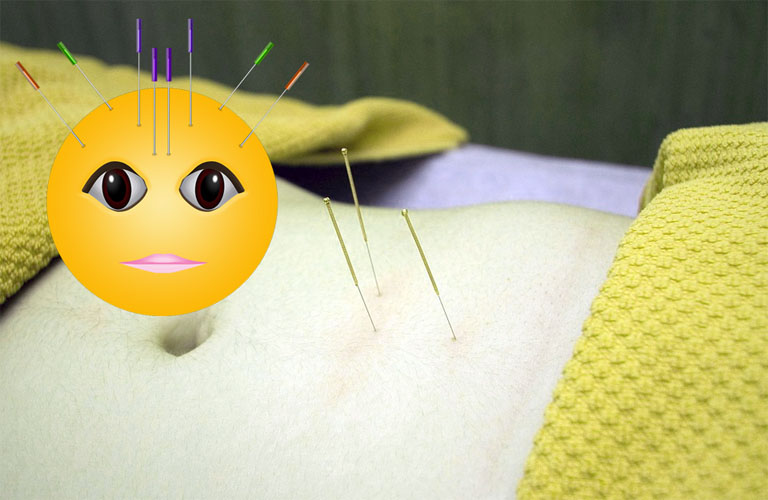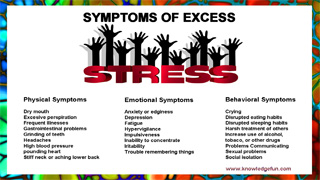Acupuncture
Acupuncture is a technique in which practitioners stimulate specific points on the body, usually by inserting thin needles through the skin. It is generally considered safe when performed by an experienced, well-trained practitioner using sterile needles. Improperly performed acupuncture can cause serious side effects.
Acupuncture works to correct disturbances in the flow of qi (pronounced as "chi" and translated as "life energy" or "life force") through the insertion of long, thin needles at appropriate points in the skin. Qi is believed to flow through the body along several meridians or pathways. There are approximately 360 acupuncture points located along these meridians.
Acupuncture practitioners use a variety of diagnostic techniques to identify the nature of the imbalance in a patient and to choose the points at which needles need to be applied. The points chosen for acupuncture are highly individualized for each patient, and they usually change over the course of treatment as the patient's health status changes.
Results from a number of studies suggest that acupuncture may help ease types of pain that are often chronic, such as low-back pain, neck pain, osteoarthritis/knee pain, and carpal tunnel syndrome. It also may help reduce the frequency of tension headaches, prevent migraine headaches and reduce menstrual cramps. Therefore, acupuncture appears to be a reasonable option for people with chronic pain to consider. However, clinical practice guidelines are inconsistent in recommendations about acupuncture.
The effects of acupuncture on the brain and body and how best to measure them are only beginning to be understood. Current evidence suggests that many factors (like expectation and belief) that are unrelated to acupuncture needling may play important roles in the beneficial effects of acupuncture on pain.
Browse Related Info:
- Traditional Chinese Medicine
- Mind and Body Interventions or Practices
- Tai Chi
- Qi Gong
- Yoga
- Hypnosis
- Meditation
- Relaxation Techniques
- CAM Natural Products
- Herbal Remedies
- Wellness and Well-Being
- Health Pages
- Testing Treatments

Did You Know?
Two of the primary treatment methods in TCM (Traditional Chinese Medicine) are acupuncture and herbal remedies.
Traditional Chinese Medicine (TCM) practitioners use other mind and body practices (such as tai chi and qi gong) to address health problems.
Studies suggest that acupuncture stimulates the release of the body’s natural painkillers and affects areas in the brain involved in processing pain; however, some trials suggest that real acupuncture and sham acupuncture are equally effective, indicating a placebo effect.
Many acupuncture trials rely on a technique called simulated acupuncture, which may use blunt-tipped retractable needles that touch the skin but do not penetrate (in real acupuncture, needles penetrate the skin).
Relatively few complications from using acupuncture have been reported. Still, complications have resulted from use of nonsterile needles and improper delivery of treatments.
When not delivered properly, acupuncture can cause serious adverse effects, including infections, punctured organs, collapsed lungs, and injury to the central nervous system.
Don’t use acupuncture to postpone seeing a health care provider about a health problem.
Tips on How to Select Health Care Practitioner
Selecting a health care practitioner of conventional medicine or complementary and alternative medicine (CAM) is an important decision and can be key to ensuring that you are receiving the best health care.
If you are seeking a complementary and alternative medicine (CAM) practitioner, speak with your primary health care provider(s) regarding the therapy in which you are interested. Ask if they have a recommendation for the type of CAM practitioner you are seeking.
Make a list of health care practitioners and gather information about each before making your first visit. Ask basic questions about their credentials and practice. Where did they receive their training? What licenses or certifications do they have? How much will the treatment cost?
Check with your insurer to see if the cost of therapy will be covered.
After you select a practitioner, make a list of questions to ask at your first visit. You may want to bring a friend or family member who can help you ask questions and note answers.
Come to the first visit prepared to answer questions about your health history, including injuries, surgeries, and major illnesses, as well as prescription medicines, vitamins, and other supplements you may take.
Assess your first visit and decide if the practitioner is right for you. Did you feel comfortable with the practitioner? Could the practitioner answer your questions? Did he respond to you in a way that satisfied you? Does the treatment plan seem reasonable and acceptable to you?





